Question And Answer
Publications
Articles, publications, books, tools and multimedia features from the U.S. Institute of Peace provide the latest news, analysis, research findings, practitioner guides and reports, all related to the conflict zones and issues that are at the center of the Institute’s work to prevent and reduce violent conflict.
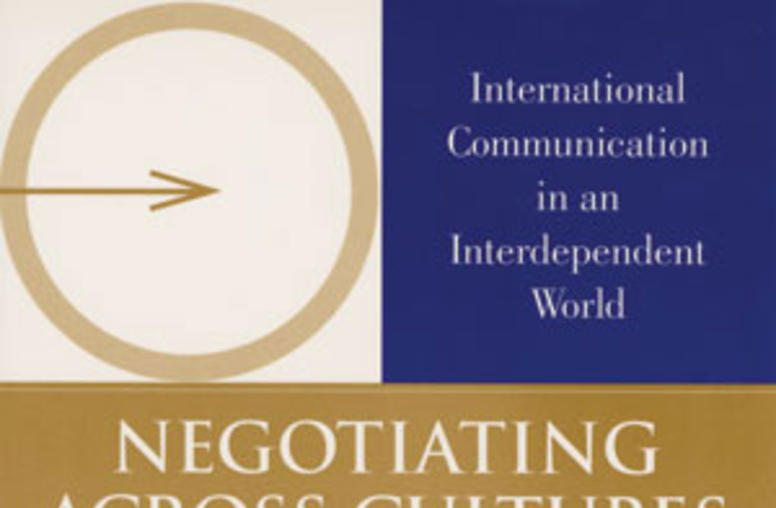
Negotiating Across Cultures
International Communication in an Interdependent World
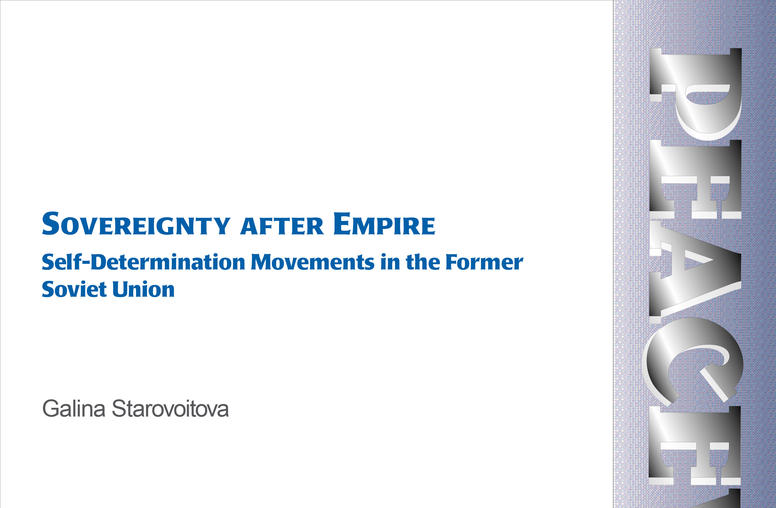
Sovereignty after Empire: Self-Determinationa Movements in the Former Soviet Union
This report examines the prominent self-determination movements in the former Soviet Union and arrives at some tentative criteria that could be used to assess their legitimacy. In contrast to futurists' visions of the "global village," where national loyalties and borders erode under the forces of globalization and decentralization, Starovoitova points to the resurgence of nationalism in the post–Cold War era, particularly on the Eurasian continent.
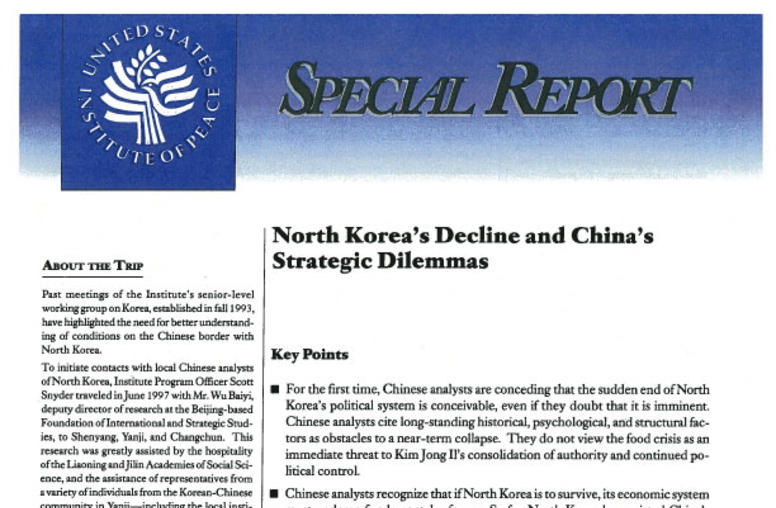
North Korea's Decline and China's Strategic Dilemmas
For the first time, Chinese analysts are conceding that the sudden end of North Korea's political system is conceivable, even if they doubt that it is imminent. Chinese analysts cite long-standing historical, psychological, and structural factors as obstacles to a near-term collapse. Chinese analysts recognize that if North Korea is to survive, its economic system must undergo fundamental reforms.

Mozambique
By the time it ended in 1992, Mozambique's 15-year civil war had exacted a terrible price. Economically paralyzed, the vast, drought-stricken country was rich only in enmity, landmines, and AK-47s. Into this misery was thrust a multifaceted UN mission, ONUMOZ, to manage the transition from military combat to electoral contest. Remarkably, when ONUMOZ departed two years later, that job was largely done.
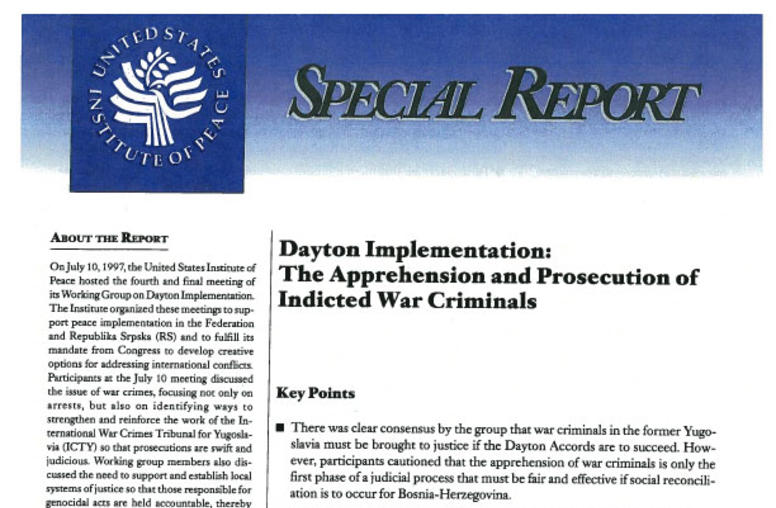
Dayton Implementation: The Apprehension and Prosecution of Indicted War Criminals
On July 10, 1997, the United States Institute of Peace hosted the fourth and final meeting of its Working Group on Dayton Implementation. The Institute organized these meetings to support peace implementation in the Federation and Republika Srpska (RS). Participants at the July 10 meeting discussed the issue of war crimes, focusing not only on arrests, but also on identifying ways to strengthen and reinforce the work of the International War Crimes Tribunal for Yugoslavia (ICTY) so that pro...
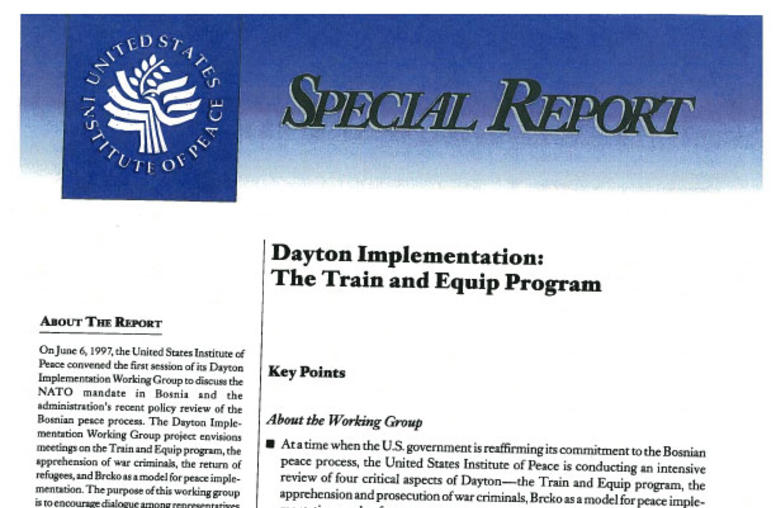
Dayton Implementation: The Train and Equip Program
The Dayton Implementation Working Group project envisions meetings on the Train and Equip program, the apprehension of war criminals, the return of refugees, and Brcko as a model for peace implementation. The purpose of this working group is to encourage dialogue among representatives from the administration and Capitol Hill and policy analysts on how best to implement these critical elements of the Dayton peace agreement
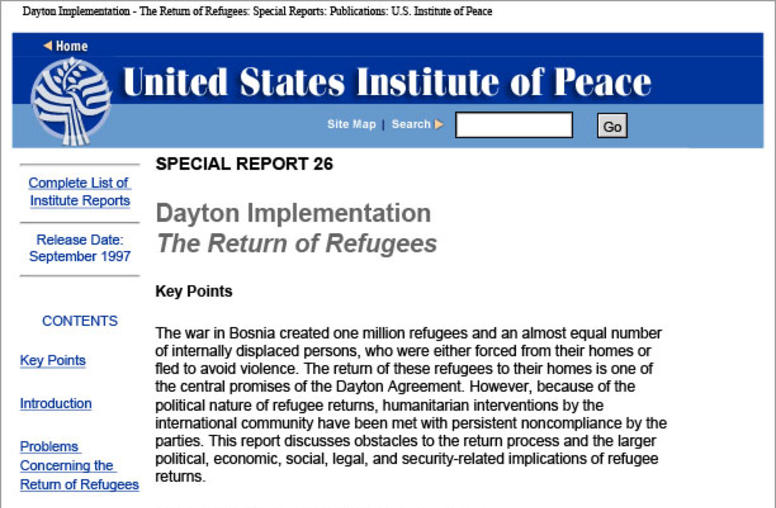
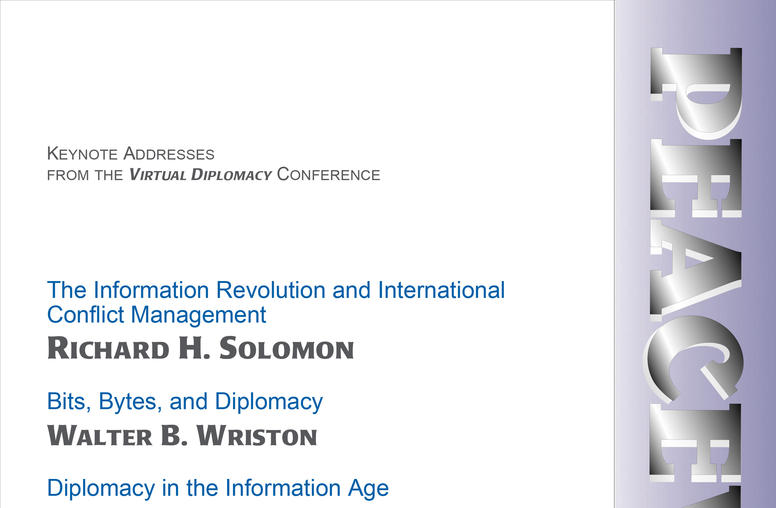
Keynote Addresses from the Virtual Diplomacy Conference
Presented in this Peaceworks is a representative portion from the conference--"Virtual Diplomacy: The Global Communications Revolution and International Conflict Management" held April 1–2, 1997. Included in the report are the conference's keynote speakers.
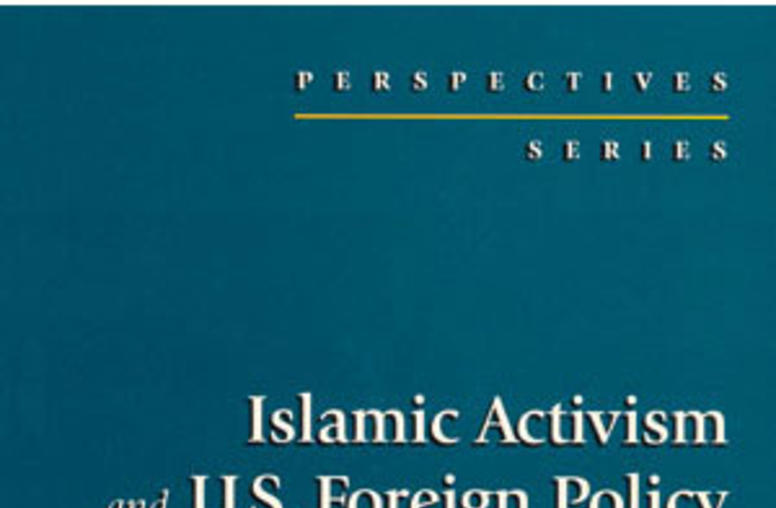
Islamic Activism and U.S. Foreign Policy
For many in the West, political violence in Algeria, the Middle East, and elsewhere has come to symbolize the threat of “Islamic activism.” Terrorist attacks such as the bombing on the World Trade Towers have solidified this view. Western governments, however, must deal with the challenge of extremism in the broader context of their relations with diverse states with contrasting histories, geographies, and peoples.
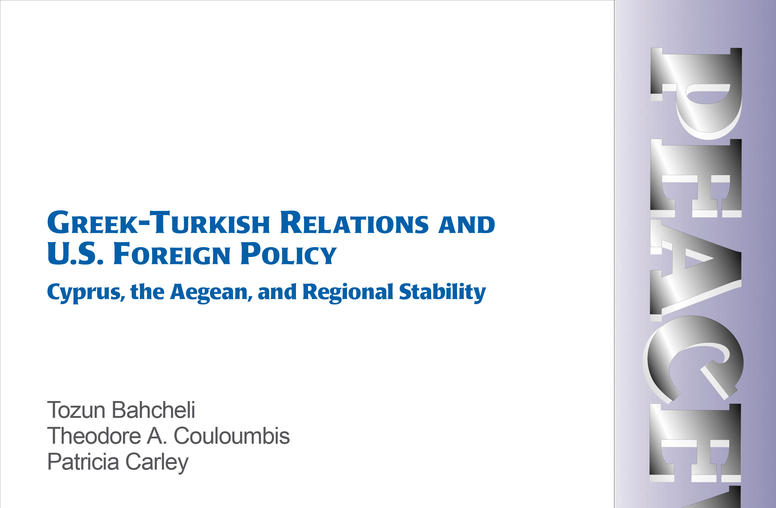
U.S. Foreign Policy and the Future of Greek-Turkish Relations
The United States Institute of Peace convened a workshop in Washington in summer 1996 that brought together Institute senior fellows. Elected participants identified possible areas of cooperation and collaboration and specific strategies of de-escalation, reconciliation, and resolution that could serve as the basis for a new era in Greek-Turkish relations. The insights and creative proposals of the participants are summarized in this report, written by Patricia Carley, program officer in the ...